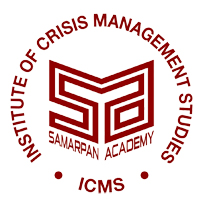Overview
Master of Arts (MA) in Music at Lalit Kala Campus, Kathmandu
Master of Arts (MA) in Music at Lalit Kala Campus, Bhotahity, Kathmandu is a two-year postgraduate program under Tribhuvan University (TU), Faculty of Humanities and Social Sciences. The program is intended for students who already have a strong base in music and wish to deepen their knowledge, refine performance, and engage in serious academic and artistic work within an accredited public university framework.
The course links advanced musical training with study of history, theory, aesthetics, research, and pedagogy. Students work closely with experienced teachers, follow an approved TU syllabus, and complete structured semesters or yearly units as specified by Tribhuvan University.
Key Highlights
-
Program: Master of Arts (MA) in Music
-
Institution: Lalit Kala Campus, Bhotahity, Kathmandu
-
Affiliation: Tribhuvan University, Faculty of Humanities and Social Sciences
-
Duration: 2 years, full-time
-
Level: Postgraduate
-
Nature: Academic and performance-based, with theory, practicals, and research
-
Medium of Instruction: Nepali and English (depending on course and instructor)
-
Eligibility: Bachelor’s degree in Music or closely related field as per TU rules
-
Recognition: TU degree recognized by the Government of Nepal and accepted for further study and relevant employment
Curriculum Details
The MA in Music follows the official curriculum issued by Tribhuvan University. The structure combines theoretical study, research components, and intensive practical work.
Core areas typically include:
-
Advanced music theory
-
History of Nepali, South Asian, and selected world music traditions
-
Raga, tala, and stylistic analysis (for classical and regional genres)
-
Critical listening and score/notation study
-
Performance practice in the chosen specialization (vocal or instrumental)
-
Aesthetics and philosophy of music
-
Research methodology in music
-
Pedagogy for teaching music in academic and institutional settings
Students progress through prescribed papers and practical evaluations each term. The exact list of subjects and credit distribution follows the official MA Music syllabus approved by TU for the current session. Students are advised to refer directly to Tribhuvan University and Lalit Kala Campus notices for the current curriculum.
Objectives
The MA in Music at Lalit Kala Campus has clear academic and professional objectives. The program seeks to:
-
Strengthen students’ command over their chosen vocal or instrumental field.
-
Deepen understanding of musical structures, styles, and traditions with context.
-
Build confidence in performance through regular practical evaluation.
-
Develop capacity to read, interpret, and discuss musical literature and scholarly work.
-
Prepare students for teaching roles in schools, colleges, and institutes where formal music education is offered.
-
Encourage disciplined research habits for those interested in musicology and related fields.
For you as a learner, this means the program expects serious commitment, regular practice, and a willingness to study music both on stage and on paper.
Scope
The scope of MA in Music from a public institution like Lalit Kala Campus is linked to education, culture, and professional practice.
Graduates can:
-
Apply for teaching positions in music (subject to national and institutional requirements).
-
Work in cultural institutions, music schools, academies, media houses, and cultural projects.
-
Continue to MPhil, PhD, or other advanced studies in music or related disciplines in Nepal or abroad.
-
Contribute to documentation, preservation, and informed presentation of Nepali musical traditions.
-
Participate in performance circuits, recordings, ensembles, or institutional music programs.
The value of the degree depends heavily on your skill level, work ethic, and portfolio, supported by the credibility of a Tribhuvan University qualification.
Learning Outcomes
On successful completion of the MA in Music, a committed student should be able to:
-
Perform with refined technical and expressive control in the selected specialization.
-
Explain key concepts of music theory and relate them to live or recorded examples.
-
Analyze and discuss musical works in written and oral formats.
-
Plan and deliver structured music lessons using age- and level-appropriate methods.
-
Prepare written research assignments or theses based on accepted academic norms.
-
Participate in informed conversations about Nepali and regional music heritage and contemporary practice.
These outcomes prepare students for roles that require both performance skill and academic understanding.
Skill Development Focus
Throughout the program, students work on a set of specific skills:
-
Vocal or instrumental mastery through systematic practice.
-
Accurate use of notation and rhythmic structures.
-
Stage discipline, recital preparation, and ensemble coordination.
-
Listening analysis and comparative study of styles.
-
Basic arranging or compositional work where applicable.
-
Academic writing skills for papers, reports, and dissertations.
-
Communication skills for teaching, workshops, and public presentations.
Each semester or year builds on the previous level, so your consistency across two years matters more than occasional performance.
Teaching Methodology at Lalit Kala Campus
Teaching and learning in the MA in Music program follow the nature of a practice-based academic subject under a public university:
-
Regular practical classes with one-to-one or small-group instruction.
-
Theory lectures supported by examples drawn from Nepali and regional musical traditions.
-
Internal assessments through class performance, tests, assignments, and presentations.
-
Formal practical and written examinations as per Tribhuvan University rules.
-
Guidance for research projects using accepted academic standards and reference materials.
Students are expected to attend classes, practice daily, maintain notebooks and notations, and take responsibility for their learning. The campus provides an academic structure; your progress depends on how consistently you respond to it.
Admission Requirements
Admission is based on Tribhuvan University criteria for MA in Music.
General requirements:
-
Completion of a Bachelor’s degree in Music (BMus, BA Music, BFA Music, or equivalent) from Tribhuvan University or a recognized institution.
-
Meeting minimum academic standards set for the MA Music intake.
-
Submission of application within the deadline mentioned in official notices.
-
Entrance examination or audition, if prescribed by TU or Lalit Kala Campus for the relevant academic year.
Required documents usually include:
-
Academic transcripts and character certificates.
-
Copy of citizenship or passport.
-
Recent passport-size photographs.
-
Any additional documents specified in the official call.
Prospective students should verify each intake’s rules directly through Tribhuvan University and Lalit Kala Campus notifications.
Career Opportunities
Graduates of the MA in Music program from Lalit Kala Campus may work in:
-
Schools, colleges, and institutes as music instructors (meeting Teacher Service Commission or institutional norms where applicable).
-
Cultural and arts organizations managing or contributing to music programs.
-
Performance settings as solo or ensemble artists.
-
Recording, broadcasting, and media platforms requiring trained musicians.
-
Research and documentation projects on Nepali music and performing arts.
-
Curriculum development or training programs in formal and non-formal music education.
Some graduates may continue as independent performers while teaching part-time or engaging in academic and cultural projects.
Scholarships and Financial Aid
Scholarship and fee support follow Tribhuvan University and public campus regulations.
Key points:
-
Scholarships, if available, are granted according to TU rules and internal criteria.
-
Any support based on merit, need, or inclusion policy is announced through official notices.
-
Students seeking support should directly consult the campus administration and refer to TU scholarship guidelines.
Unverified claims from unofficial sources should not be relied upon.
Why Choose MA in Music at Lalit Kala Campus?
MA in Music at Lalit Kala Campus suits students who:
-
Want a recognized postgraduate music degree under Tribhuvan University.
-
Prefer a structured program where performance, theory, and research move together.
-
Value studying in a public institution with a background in fine arts education.
-
Plan to work in teaching, research, or cultural sectors where accredited qualifications matter.
-
Intend to deepen their practice in Nepali, South Asian, or classical music traditions through systematic training.
Conclusion
Master of Arts in Music at Lalit Kala Campus, Kathmandu, offers a focused two-year postgraduate path for students who wish to advance from basic musical competence to informed, responsible professional practice. The program stands on Tribhuvan University’s approved curriculum, formal examination system, and public accountability.





















